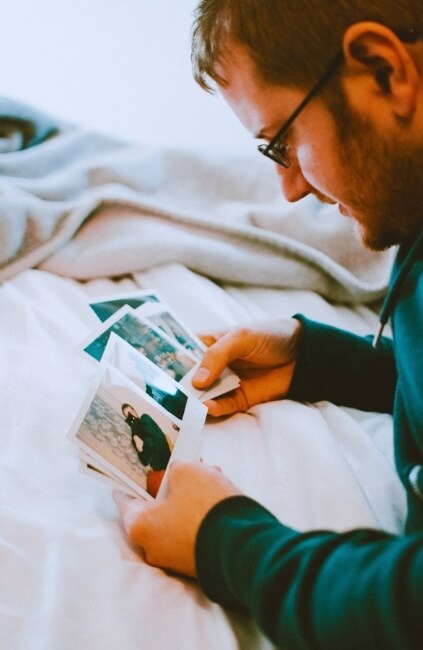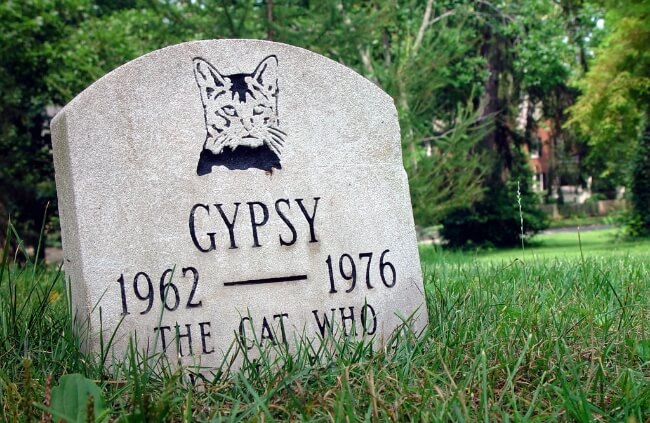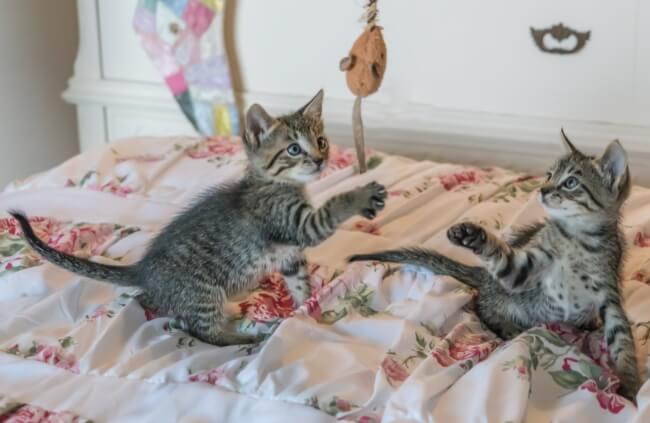Loss of a cat is hard. You don’t get over it. Everything you are currently feeling is completely valid, and in time, those feelings will still be there, but they’ll be accompanied by joyful memories, and a warmth that takes over the sadness.
I lost my first cat when I was twenty-seven. She was twenty-seven too. We’d had an entire life together, and now, at thirty-seven, looking back, I don’t miss her any less.
Losing a cat is awful, regardless of how long you’ve had together, but please, take time for yourself, and try to focus on the memories you have together as much as you can.
More...

Grieving with the loss of a pet can be easily misunderstood by those without pets or those who haven’t had that same connection with their pets.
When your cat passes away or goes missing, coming to terms with it is incredibly difficult, and it is often worth taking time off work to give yourself time to process your loss. Most employers will understand and allow you to take compassionate leave during this time.
Cats are a part of your family and one that is far more reliant on you than children or human family members. That makes your connection and the understanding you have with them as unique as they are.
Understanding Your Grief After a Loss of a Cat
Stages of Grief
Grieving for a cat is the same as grieving for any other family member. There are typical stages of grief, which are by no means a standard rule. Many bypass denial, anger and depression, while some are capable of reaching acceptance easily.
The hardest stage, regardless of how you get there, is processing your grief. At that point, your loss is cemented, and you need to move on emotionally, and practically.
The generally accepted stages of grief are:
- Denial
- Anger
- Bargaining
- Depression
- Acceptance
- Processing Grief
Denial is one of two illogical stages of grief (the other being bargaining). The most important step to take is accepting what has happened, and both denial and bargaining can be processed more easily if you can accept what happened.
It’s perfectly natural to feel angry, and depression will come in waves. The two are quite well aligned. I’m ten years on from losing my first cat, and that depression is no less than it was then, but it is less frequent.
For me, processing my grief came when my partner sat me down and explained that she (our cat) would have wanted us to think of the happy times and the funny ones. Because she was a funny cat, with bizarre habits. So instead of bargaining, and begging for her to be back with us, we started taking more personal steps to process that grief, and turn it into something better.
Steps to Help Grieve After Losing a Cat More Smoothly
As well as knowing and understanding your grief, which is an important part of processing your emotions, and coming to terms with loss, there are some simple self-help methods that will allow you to get through the worst of your grief more smoothly.
Make Time for Grief
Firstly, make time for your grief. It doesn’t need to be prescribed, scheduled time, but it’s often better if it is. Setting aside half an hour to look through photos, cuddle your cat’s bedding, or sit in their favourite spot, will give you the permission to work through grief that you need.
Acknowledge Your Grief
If you’re of the mind that your grief is not valid, or you think that feeling this strongly for the loss of a cat is in some way unjustified, think of how much time you had with your cat.
In the time you had your pet, how many humans have you spent that much time with? Regardless of how close you were to your cat, they will have left a sizable mark on your heart and mind, so allow yourself to grieve. Acknowledge the validity of your emotions.

Speak to People Who Understand and Care About You
Explaining that your grief, and potential depression, are caused or worsened by the loss of your cat to those who either don’t have cats or haven’t experienced this sort of grief before can be hard.
First, try to spend more time with friends and family who are able to listen. This gives you the opportunity to feel things in the way you need to. Later, once you’re in a better place, welcome in other voices, who may be able to help rationalise your grief, and share their own experiences.
Look Back through Memories, and Remember Your Favourite Moments
Make space for your cat, even when they’re gone. After ten years without my fur baby, I still find joy in saying goodnight to her urn, which sits under the TV, where she spent most of her later years staring up at us from.
As time passes, having those physical reminders makes missing her feel more natural. Her photograph on the mantel keeps her image alive.
Giving space in the house isn’t about setting up a memorial site, but it does mean you can maintain her memory, and knowing you’ve done that is reassuring.
Support Your Other Pets’ Grief
If you’ve got other pets, losing your cat can affect them really deeply. When we had our first cat, she came to us from a grandparent and was our only pet, but we later got three more. One of them had an accident four years ago, and the others still go looking in his hiding places expecting to find him.
Cats adapt well to being the only pet in a home, but when they have brothers and sisters, or even dogs and rabbits to keep them company those bonds grow strong.
Even if you don’t feel much like playing with your other pets after the loss of a cat, make sure you do. It will help them to find a new normal sooner, and you’ll build deeper connections with them too. Both of you will be better for it.
Note: If you had a cat and one rabbit, their bond might have been incredibly important to the rabbit. Consider adopting a guinea pig for your rabbit to bond with (other rabbits can become aggressive when joining older rabbits in established homes, and a new cat may not share the same bond).
Practical Advice for Coping with the Loss of Your Cat
In the immediate aftermath of losing your pet, there are some basic steps to take. If you have a burial or memorial plan, follow that. If not, start by calling your vet.
Your vet knows you, and your cat. They will offer advice and support when you need it, and if you choose cremation, can help to manage the process for you.
Choosing Between Cremation and Burial

Cremation is more common for pets of all kinds because the process is easier and more formal.
For some cat parents, the formality isn’t ideal, but for others, including myself, it has helped enormously and helped me to process my own grief thanks to the clearly defined expectations, and the simple addition of being able to speak to my vet during the process for support.
Cremation
If you haven’t chosen between cremation and burial, we would generally suggest cremation. It is a simpler way to memorialise your pets, and they stay with you.
Receiving their ashes usually takes about one week, and offers an important part of the grieving process, often naturally aligning with or triggering acceptance.
Cremation takes two forms; traditional cremation and water cremation. If the latter sounds new to you, learn more about it by reading our guide to water cremation.
Burial
If you decide to opt for burial, some cemeteries have pet sections, but most owners choose to bury their pets at home in their own gardens.
There are wonderful memorials you can buy to accompany burial sites for your pets, and you will always look back with fond memories if you treat your cat’s burial with attention and respect, rather than rushing it.
Provide a proper space in the garden, near their favourite tree, or somewhere you like to sit.
Adopting a New Cat After the Loss of Your Pet
One huge question is whether you should adopt a cat after losing one. The simple answer in most cases is yes, but not too soon. Don’t just go out and adopt a cat to fill a hole while you’re still grieving, but don’t close yourself off either.
There are cats in rescue centres who need loving homes, and you are probably in a good position to offer them that. Your love for them will be no more, or less than it was for your last cat. It will be different, and your relationship with them will be different.
Allowing yourself to build regrets due to grief will only slow grief down, so if you find yourself thinking about cat adoptions, and you’re at a point of peace, and acceptance, then it’s probably time to start looking.

Accessing Therapy After a Loss of a Cat
Losing your cat is a valid grief and one that can last for years if not your entire life. But, like any grief, it changes with time, and you become stronger for it. Once you have learned to accept it, you can grow and adapt around it.
If a long time has passed and your grief is still negatively affecting your life or has morphed into lasting depression, don’t be afraid to seek therapy.
There are therapists all over Australia who will support people through grief at the loss of a cat, or the loss of a pet.
Services Providing Therapy for Grief in Australia
There are more than just those in the list below, but if you need a quick link for online or over-the-phone therapy to talk through your grief, consider getting in touch with the services below.
All of their rates vary, with information on their websites for each.
None of the therapy services detailed in this article are crisis counselling services. If you are in crisis, please call Lifeline, Griefline or the Suicide Call Back Service for free:
- Lifeline: 13 11 14
- Griefline: 1300 845 745
- Suicide Call Back Service 24/7: 1300 659 467
Forever in My Heart
Specialising in anticipatory grief, leading up to end-of-life decisions, this pet loss counselling service based in Melbourne offers group therapy or remote sessions online and over the phone for grieving pet parents at any stage in their journey.
Website: Forever in My Heart
Pets and People
Pets and People has dozens of trained counsellors offering private support in person or over the phone in all corners of Australia. If you need personal or in-person grief counselling to help you process the loss of your cat, they can be contacted easily.
Pets and People also offer a 24/7 support line for advice and to schedule counselling.
Website: Pets and People
By My Side
Vicky Nonas is a bereavement counsellor specialising in pet bereavement, based in Luddenham, NSW. She offers services online, over the phone and in person in Luddenham.
Sessions can be booked in advance to support you through the process of loss, from end-of-life decisions, through to acceptance, however long that might take.
Website: By My Side
Pet Eden
For anyone in Perth, struggling with grief after the loss of their pet, Pet Eden, run by Tracey Woods, offers thoughtful and personal grief recovery for pet parents who need extra support coping with their loss.
Website: Pet Eden
Be Kind to Yourself and Take Your Time Grieving the Loss of a Cat
Grief is awful. There is no way to avoid that, but it is important to go through it at your own pace. Take time to process your emotions over the loss of your cat, and do them justice with beautiful cat memorials, or framed memories.
If you need to, seek out counselling, and pay attention to any other pets in your home whose grief might go unnoticed.
Just because it’s hard now doesn’t mean it won’t get easier. Grief won’t ever leave you completely, and it shouldn’t. But you will learn to live with it, and the bond you have might be even stronger if you grieve the loss of your cat properly.
